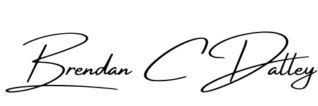“Sometimes on the journey to fulfilling a dream you get lost and find an even better one.”
Unknown
I don’t remember a time when I didn’t feel vulnerable to some degree. Whether it was real, imagined or something unquantifiable, a sense of worry and incompleteness hovered over me like smog. It refused to be moved. Aging didn’t rid me of these fears, nor did education, nor success. I guess I just got better at living with it. Found a place for it at the back of my mind. If only I knew about flexible thinking.
Most voices seem to indicate that feelings like these are basic human nature. They point to the fact that we are born with an inherent ‘fight or flight’ mode. They will say that some of us are just better at the stand and fight part than others. Others, like me, have trouble turning the flight mode off.
For whatever reason, the fact is that some of us are better able to ignore the nagging voice of fear and charge on regardless. Some are able to enter the ring and not give heed to the consequences. Whether this is courage and bravery or ignorance and stupidity depends on the outcome and your perspective I suppose.
Everyone has a breaking point
In any case, whilst outcomes will vary depending on your approach, time and life have shown us one thing that we all share. Whether you have the courage of a lion or the meekness of a mouse, every human being has a breaking point. Everyone gets knocked off their feet at some point.
Consider the countless brave, selfless and highly trained soldiers who went away to serve. Who came back broken and unable to process what they had seen. Consider the extraordinarily long list of celebrities at the very top of their game, who upon gaining everything anyone ever dreamed of, took to drugs and embraced oblivion. Remember the many ‘average Joes’, who were unable to cope with the drudgery, pain and sadness of everyday life.
The list of names of those who were broken is long, personal and very close to our collective hearts. This fact makes me consider one thing above others. Why is it that we train to succeed, to win and to triumph, but we don’t train to handle trouble, grief, loss and failure, even though we know they are inevitable?
Flexible thinking
The fact that rehabilitation and resilience are at the core of every successful triumph over adversity and failure will not be a surprise to most. What may not be so obvious is that at the core of both of these terms is the notion of flexible thinking. It is flexible thinking that will enable you to rise like the proverbial ‘Phoenix from the ashes’ after struggle. Flexible thinking is the difference.
Flexible thinking is the cognitive ability to see different approaches to critical problems. It is to see other possibilities than your current circumstances and to let go of an outdated view of yourself in favour of a new vision. Your ability to be flexible in dark times will help you to both develop a new dream and implement a plan to achieve that dream, despite challenges. Rocky said it best “It’s not about how hard you hit. It’s about how many times you can get hit and keep getting up again”.
Not an easy skill to master
Flexible thinking is not necessarily an easy skill to master, but it is an essential one to understand if you are to bounce back well. Consider just about every successful person with a disability in public life. At some point they will have faced and accepted the fact that they cannot do things the same way as their fully able friends. Due to the highly refined flexible thinking that many disabled people need to participate in society, they were able to grieve, let go and adapt to their circumstances. They chose at some point to see their challenge as an opportunity.
My own slow journey towards flexibility
My career ended in difficult and violent circumstances that were beyond my control. Without going into detail, I took many months, even years, to accept my fate. For a long time I continued to describe myself by my profession even though I was unable to pursue it any longer. I didn’t look for new options because in my mind there remained a persistence of vision concerning where I was headed. I was inflexible.
Through the advice of family and friends, eventually I saw what they saw. That I was not defined solely by my career, I was not a failure and I am capable of more. Through their eyes I saw that where I stood was an opportunity to embrace my passions. I could write and I could help others. I could be with my family more often and I could choose a new career path if I wanted to.
Still striving
This was not an easy place to reach and I am still far from home if I am honest. Changing is hard and needs the counsel of good people to help you see the value in embracing a different life. The most difficult decision was not that I wouldn’t try to go back to my old life, it wasn’t my future career direction and it wasn’t to let go of pain and regret (though this is key). It was that I was willing to see myself as something different. I was willing to walk a new path and I was willing to be open to being someone better.
Resilience is all about being flexible. It is about not being so dedicated to one vision of yourself that you don’t see a brighter opportunity just ahead. It is about being able to walk away from failure and pain for the promise of a better, more flexible day.
Points to remember
- Flexible thinking means being open to other people’s opinions. Pick counsel wisely.
- Having alternative ideas and possibilities can help you maintain hope during difficult times.
- Start small. Look for little ways to vary your routine. Try new things.
- Easier doesn’t always translate to better. Harder doesn’t always translate to success.
Links
Lockdown- A time to be psychologically flexible. » The Good The Bad and The Unrelated
The Road Not Taken – Robert Frost (Powerful Life Poetry) – YouTube



Very helpful words 🙂
Thankyou my friend
Leaving me with some thoughts to ponder.
Thanks Lani.
The idea of flexible thinking and not being defined by one attribute of yourself is so important! I think many of us get into a rut and don’t want to change, even when things are clearly not working.
Thanks Nicole. Old habits of thinking seem to respond a bit like muscle memory. It takes a lot to retrain it into better habits.
Great post! Very helpful!
Thanks kindly, Nancy.
Very well said. I remember feeling so lost when leaving the military because I was unable to wrap my head around being something other than just a military member – it had become “who” I thought I was and I struggled to realize that what I did isn’t who I am. Still not great at flexible thinking but I feel I am improving a little each day with it. Thanks for sharing!
Thanks Amanda, Identity is a strange thing. It’s almost like muscle memory. There are a lot of benefits to flexible thinking but its oh so hard to learn. I’m always struggling with it. All the best to you.